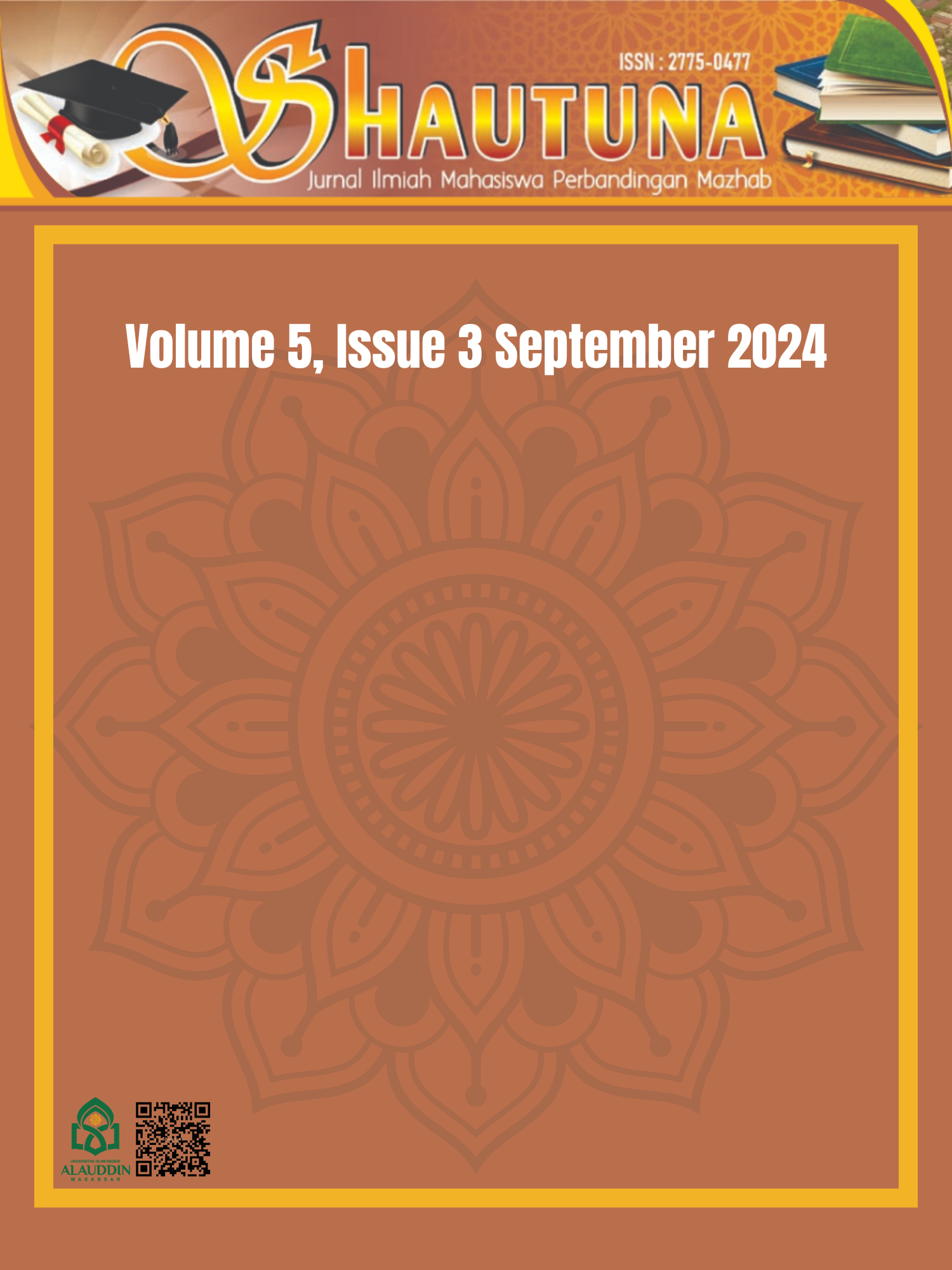Legal Protection of Child Victims of Economic Exploitation in Makassar City
An Examination of the Child Protection Law and Islamic Law
DOI:
https://doi.org/10.24252/shautuna.v5i3.50357Keywords:
Legal Protection, Children of Exploitation Victims, Economic Exploitation, Child Protection Act, Islamic LawAbstract
This study aims to examine the forms of child exploitation that occur in Makassar City, an analysis of regulations in Law Number 35 of 2014, as well as the views of Islamic law on the protection of child victims of exploitation. The method used is qualitative with data collection techniques through interviews, observations, documentation, and literature studies. The results of the study show that forms of child exploitation in Makassar include buskers, beggars, street vendors, and children in costumes. The main driving factor is economic problems. Many families depend on their children's activities on the street for their livelihoods. The government, through the social service, seeks to minimize this phenomenon with monthly assistance to poor families. Regulatively, Article 76I Jo Article 88 of Law No. 35 of 2014 prohibits economic and sexual exploitation of children, with a maximum penalty of 10 years in prison and/or a fine of up to Rp200 million. However, many cases do not proceed to legal proceedings due to a lack of evidence. Therefore, the restorative justice approach is considered more effective. In an Islamic perspective, child exploitation is contrary to the principles of Maqasid al-Sharia, which emphasizes the importance of safeguarding and protecting future generations. MUI Fatwa Number 1 of 2021 also emphasizes that the practice of begging involving children is classified as exploitation and unlawful. The implications of this study emphasize the importance of the role of the community and the government in increasing public awareness through education, seminars, social media campaigns, and stricter law enforcement for the protection of children's rights.
References
Agusnawan, Andi Fajar, Hambali Thalib, and Nur Fadhilah Mappaselleng. “Perlindungan Hukum Terhadap Anak Sebagai Korban Kejahatan Eksploitasi Secara Ekonomi.” Journal of Lex Generalis (JLG) 4, no. 2 (2023): 217–34. https://mail.pasca-umi.ac.id/index.php/jlg/article/view/1309.
Alfian, Muh, Rahman Syamsuddin, Muhammad Ikram, and Nur Fuady. “Penerapan Regulasi Tentang Pekerja Sosial Terhadap Lembaga Pekerja Sosial Di Kota Makassar.” Alauddin Law Development Journal 5, no. 1 (2023): 157–66. https://doi.org/10.24252/ALDEV.V5I1.21313.
Andi, Aysha Zalika Ardita Putri. “Permasalahan Anak Jalanan Di Surabaya (Studi Eksploratif Eksploitasi Anak Jalanan Di Surabaya).” Antroposen: Journal of Social Studies and Humaniora 1, no. 1 (2022): 28–37.
Anjari, W. “Fenomena Kekerasan Sebagai Bentuk Kejahatan (Violence).” Jurnal Widya Yustisia 1, no. 2 (2017): 42–51. http://e-journal.jurwidyakop3.com/index.php/yustisia/article/view/159.
Ariani, Andi Irma, Andi Saiful Alimsyah, Andi Ikramullah, Sekolah Tinggi, and Ilmu Ekonomi Bongaya. “Eksploitasi Anak Di Kota Makassar: Studi Kasus Anak Dipekerjakan Paksa Orangtua.” Indonesian Annual Conference Series 1 (June 2022): 122–26. https://ojs.literacyinstitute.org/index.php/iacseries/article/view/645.
MH, Darmini. “Perlindungan Hukum Terhadao Ekspoitasi Pekerja Anak Dibawah Umur.” QAWWAM : Journal for Gender Mainstreaming 14, no. 2 (2020): 54–76. https://doi.org/10.20414/QAWWAM.V14I2.2809.
Muhiddin, Nurmiati. “Tinjauan Hukum Terhadap Eksploitasi Anak Di Kota Makassar.” El-Iqthisady : Jurnal Hukum Ekonomi Syariah 2, no. 2 (2022): 286–98. https://doi.org/10.24252/EL-IQTHISADY.VI.34004.
Nurhalisah, Irfan Lewa. “Peranan Mediator Dalam Penyelesaian Sengketa Kewarisan Perspektif Hukum Islam Dan Hukum Positif.” Shautuna: Jurnal Ilmiah Mahasiswa Perbandingan Mazhab 2, no. 1 (2021): 119–33. https://doi.org/10.24252/shautuna.v2i1.16580.
Risandi, Muh Risal, and Muhammad Sabir Maidin. “Perlindungan Hukum Terhadap Anak Jalanan Akibat Perceraian Orang Tua Di Kabupaten Pangkep; Studi Komparatif Hukum Positif Dan Hukum Islam.” Shautuna: Jurnal Ilmiah Mahasiswa Perbandingan Mazhab 2, no. 1 (2021): 293–308. https://doi.org/10.24252/shautuna.v2i1.16282.
Syarbaini, Ahmad. “Teori Ta’zir Dalam Hukum Pidana Islam.” Ius Civile: Refleksi Penegakan Hukum Dan Keadilan 2, no. 2 (2019): 1–10. https://doi.org/10.35308/JIC.V2I2.967.
Downloads
Published
How to Cite
Issue
Section
License
Copyright (c) 2024 Khumaerah Ismail, Rahman Syamsuddin, Irfan Irfan

This work is licensed under a Creative Commons Attribution 4.0 International License.









